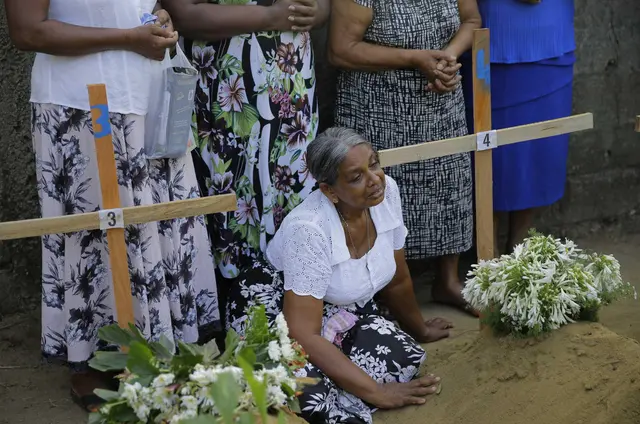South Africa is set to announce its budget for the year ahead on Wednesday, following the downfall of Jacob Zumba and years of economic mismanagement that has left the country firmly at the back of the BRICS pack.
Finance Minister Malusi Gigaba is set to deliver the strategy for 2018/19, with a series of political and economic threats looming over Pretoria in what will be a crucial year for getting South Africa back on track.
In November, S&P downgraded South Africa’s local debt to a junk BB+ rating, warning the “economy has stagnated and external competitiveness has eroded.”
South Africa's President Cyril Ramaphosa (R) shakes hands with his predecessor Jacob Zuma at a farewell cocktail function for Zuma in Cape Town, February 20, 2018.
Unemployment officially stands at 26.2 percent (many economists believe it is more than 30 percent) and per capita GDP is declining by around 0.8 percent per year – all factors that point to policy failings under Zuma’s nine-year presidency.
Talking to the Mail and Guardian, Gigaba said that South Africans should “prepare for another tough budget,” promising “massive spending cuts” after a 50 billion rand (4.26 billion US dollar) hole in revenue last year.
Why is South Africa’s economy in the doldrums?
Gigaba's budget will likely be both his first and last, with President Cyril Ramaphosa likely to replace him in a cabinet reshuffle designed to move the African National Congress (ANC) on from the Zuma era.
The fact that Gigaba was Zuma’s fifth finance minister (Pravin Gordhan served two terms in that nine-year period) speaks volumes about the economic instability under the ousted president.
In 2015 David van Rooyen was made finance minister and was in the position for just three days, with Zuma replacing him after markets reacted negatively to his appointment.
Zuma survived nine no-confidence votes before finally being forced to resign earlier this month.
Zuma was forced to step down amid a series of corruption allegations. Arguably the country’s economic problems are rooted in the graft culture that flourished in the Zuma era, while his policies failed to address deep inequality in South African society.
The three lucrative sectors of mining, tourism and agriculture were not exploited under Zuma, who instead continued to bloat the civil service and carry on with a tired consumption-led economic model that ignored crippling levels of unemployment.
The BRICS countries all saw economic growth set back in the aftermath of the 2008 financial crisis, but South Africa in particular has failed to get back on track.
According to the World Bank, there are more people in poverty now than there were in 2010, while gross national income per capita is currently lower than it was in 2006.
The World Bank’s outlook for South Africa in 2018 remains gloomy – it estimates GDP growth of just 1.1 percent – far below other developing economies and the predicted average for the rest of sub-Saharan Africa.
What to expect from the budget
It’s going to be a tight balancing act – repairing the economy will need a great deal of investment, but wasteful spending under Zuma has left a painful deficit that demands urgent attention.
Children look on as a resident carries a plastic container filled with water from a communal tap in the Khayelitsha township, Cape Town, South Africa, on Friday, Feb. 9, 2018.
The government will look to avoid any further credit downgrades and encourage international investors to return after being turned off by the instability surrounding Zuma.
That will mean getting tough on the deficit, with South African media speculating that income tax will go up, while value-added tax (VAT) could be raised from 14 percent for the first time since 1993.
Higher prices would be a blow to dealing with inequality, likely putting off core supporters of the ANC ahead of elections slated for 2019.
Members of a mining community sit outside a shack in Nkaneng township, Marikana's informal settlement, in Rustenburg, South Africa, April 2014.
Grants and subsidies to the country’s poorest people, while expensive for the cash-strapped economy, will likely remain in place until economic growth returns and unemployment can be addressed.
Meanwhile, a pledge to provide free education to the poorest South African households again puts pressure on the government to come up with a budget that it can afford.
(CGTN)
 简体中文
简体中文

